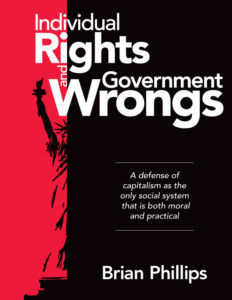This is an excerpt from Individual Rights and Government Wrongs.
To meet budget shortfalls, a growing number of municipalities and state governments are considering some form of privatization for their parks. These proposals are usually met with indignant opposition. Private companies, it is claimed, would despoil the parks by building condos on the rim of the Grand Canyon. Motivated by profit, they would erect a Starbucks in front of Old Faithful. They would raise prices and turn parks into the playgrounds of the rich, leaving the poor and middle-class with few opportunities to enjoy outdoor recreation. And, as the acting director of the National Recreation and Park Association stated in 2006, privatizing parks is un-American: “Public parks embody the American tradition of preserving public lands for the benefit and use of all.”
Public libraries are similarly defended. “Public libraries invoke images of our freedom to learn, a cornerstone of our democracy,” said one supporter of public libraries. Without public libraries, it is claimed, the poor would not have access to books. Private libraries will focus only on their profits and cut needed services. They will neglect patrons and hire unqualified staff.
These positions are widely held, but are they true? Will private parks be filled with fast-food restaurants and commercial activities? Will businesses cut services in the pursuit of profit? Are public parks and libraries really a part of America’s heritage? To begin, let us look at the arguments in favor of these public institutions.
Individual Rights and Government Wrongs is now available for FREE. Simply enter your email below and within minutes you can be reading about alternatives the media doesn’t discuss.
